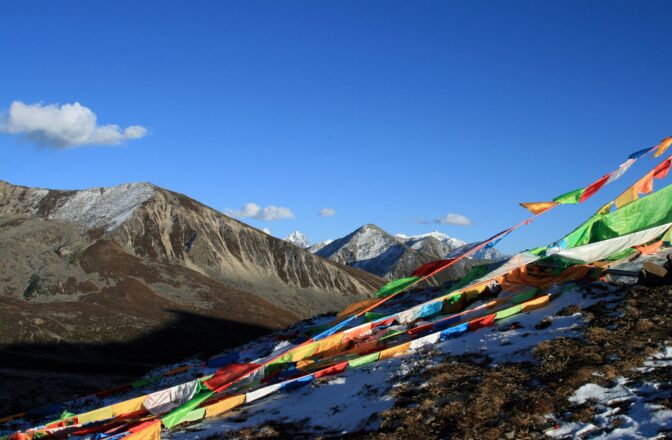What to Pack for Your DofE Expedition: Smart Choices for a Great Adventure
Getting ready for your Duke of Edinburgh’s Award expedition is exciting –...
Learn more
9 May 2017
China is full of dichotomies; modern and traditional, east and west, calm and crazy! A rapidly developing world player with a massive global influence, an expedition here is a great opportunity for students to experience China’s extraordinary diverse culture and language first hand.
This July a team will head for the western provinces of Sichuan and Gansu, where they hope to experience Tibetan traditions, ancient sites and endangered treasures, alongside China’s astonishing and rapid modernization.
After getting off the clean and efficient metro in Sichuan’s capital Chengdu, they will emerge to watch people practicing tai chi, playing mahjong and sipping tea in the park. On the motorway they might see a horse and cart. Near the bustling modern city are mist-shrouded, sacred mountains, and a countryside scattered with ancient villages and cliffs of carved Buddhas with people still farming the way they always have.
Their project will be in remote Sichuan, a vast landscape of plateau grasslands and glacial mountains where Tibetan culture still thrives. They will be based in Lhagang in the mountainous Ganzi Tibetan Autonomous Region, working with a social enterprise whose objective is to improve the lives of the local Kham people. The business works as a cooperative which will help these nomadic Tibetan artisans increase their incomes without requiring them to drastically change their lifestyles or move to the cities.
While they are there the team will help with river restoration and they plan to construct a bridge to make river crossings safer for yak herders in the high pastures. They will also build a cheese cave to make cheese from yak milk to hopefully create another income for the nomads.
For the rest of their expedition, they will visit a traditional nomadic Horse Festival in Tagong, embark on a challenging 5-day trek in the mountains, visit Tibetan monasteries, stand on the westernmost point of the Great Wall in Jiayuguan and, of course, see the giant pandas in Chengdu.